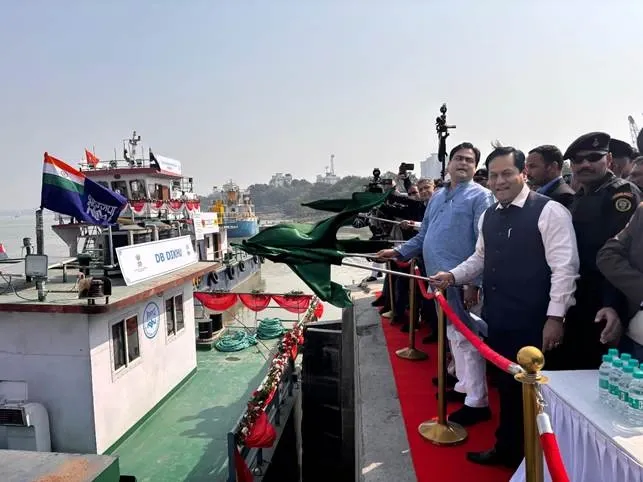Context: The Union Minister of Ports, Shipping & Waterways, launched the ‘Jalvahak’ policy, aimed at promoting cargo movement via National Waterways (NW) 1 (Ganga), 2 (Brahmaputra), and 16 (Barak).
More On News:
- It is a joint initiative by the Inland Waterways Authority of India (IWAI) and Inland & Coastal Shipping Limited (ICSL), a subsidiary of the Shipping Corporation of India.
- The cargo promotion scheme offers incentives to cargo owners for transporting goods over 300 km via inland waterways.
- The policy incentivizes long-haul cargo transport and includes a fixed schedule for cargo vessels.
- The service will operate between:
- Kolkata, Patna, and Varanasi on NW 1
- Kolkata and Pandu (Guwahati) on NW 2 via the Indo-Bangladesh Protocol Route (IBPR).
- The first vessel, MV Trishul with two Dumb Barges (Ajay & Dikhu), is transporting 1500 tonnes of cement from Kolkata to Pandu (Guwahati) via the IBPR.
- The second vessel, MV Aai, is carrying 1000 tonnes of gypsum to Patna.
- The third vessel, MV Homi Bhaba, is transporting 200 tonnes of coal to Varanasi.
- The initiative reflects India’s commitment to enhancing its inland waterways, with a target of 200 million metric tonnes of cargo movement by 2030, and 500 million metric tonnes by 2047.
- Key highlights:
- The ‘Jalvahak’ scheme provides a 35% reimbursement of operating expenses for cargo moved over 300 km via waterways.
- The fixed-day scheduled service started with cargo vessels carrying goods like cement, gypsum, and coal.
- The scheme encourages the use of vessels from operators other than IWAI or ICSL.
- The service aims to reduce logistics costs, decongest roads and railways, and promote sustainable transportation.
- The scheme is initially valid for 3 years and supports the government’s vision for a sustainable, efficient, and eco-friendly transport system.

